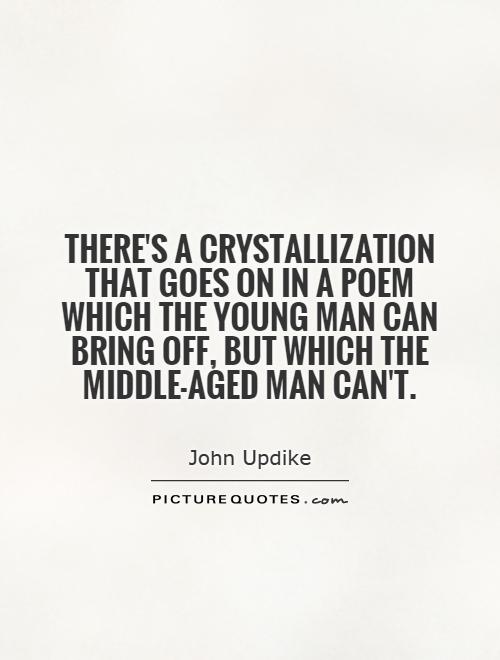There's a crystallization that goes on in a poem which the young man can bring off, but which the middle-aged man can't

There's a crystallization that goes on in a poem which the young man can bring off, but which the middle-aged man can't
John Updike was a prolific writer known for his keen observations of human nature and his ability to capture the complexities of everyday life in his works. One of the themes that Updike often explored in his writing was the passage of time and the changes that come with age. In his essay "The Young Writer and the Middle-Aged Writer," Updike delves into the idea that there is a certain crystallization that occurs in a poem that can only be achieved by a young writer, and that this quality is lost as one grows older.Updike argues that the young writer possesses a certain freshness and vitality that allows them to tap into their emotions and experiences in a way that is unencumbered by the weight of years. This allows them to create poems that are raw, honest, and full of energy. The middle-aged writer, on the other hand, has accumulated a lifetime of experiences and responsibilities that can sometimes cloud their vision and dampen their creativity. Updike suggests that the middle-aged writer may struggle to tap into the same level of intensity and passion that the young writer can bring to their work.












 Friendship Quotes
Friendship Quotes Love Quotes
Love Quotes Life Quotes
Life Quotes Funny Quotes
Funny Quotes Motivational Quotes
Motivational Quotes Inspirational Quotes
Inspirational Quotes